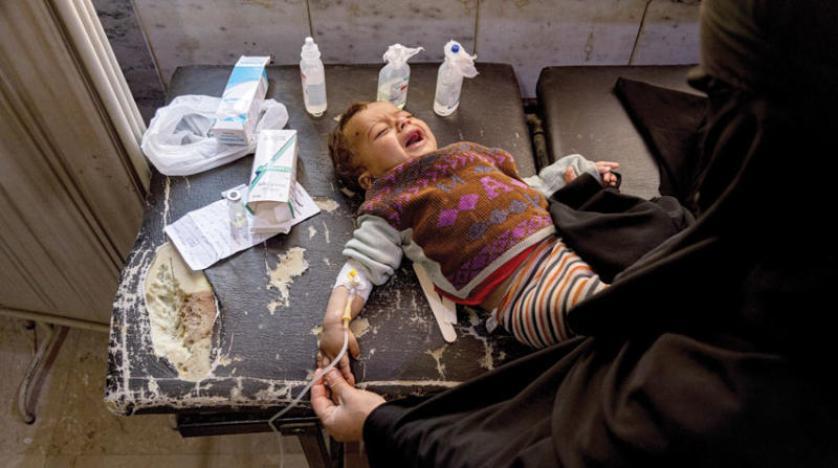The cholera outbreak in Syria is affecting all regions, regardless of the forces in control. Regime-run areas, however, are proving to be most affected by the epidemic.
Concerns are intensifying as more cholera cases are being reported from overcrowded refugee camps, where the necessities of life, like potable water, are not available.
Official statistics published by the Syrian Health Ministry showed that the governorates of Aleppo and Deir Ezzor in northern and eastern Syria had the largest number of cholera cases.
Damascus has been trying to impose strict measures to curb the spread of cholera.
The epidemic’s death toll in regime-controlled areas has risen to 44, according to the ministry. At least 908 infections have been reported as well.
The ministry recorded 558 infections in Aleppo, 165 in Deir Ezzor, 68 in Hasaka, 33 in Raqqa, 28 in Lattakia, 19 in As-Suwayda, 11 in Damascus, ten in Hama, seven in Homs, five in Daraa, and two in the Damascus countryside, and one in each of Quneitra and Tartous.
According to Damascus, two more people died because of cholera infection in northeastern Syria.
The Syrian capital urged health workers to continue reporting suspected cases.
Najat Rochdi, Deputy Special Envoy of the Secretary-General for Syria, warned on Friday that the cholera outbreak could become “catastrophic.”
“Aid is urgently needed, and sustainable and unhindered access to affected communities is imperative,” said Rochdi.
Earlier, the UN attributed the rise in cholera cases in Syria to severe decline in Euphrates River water level, drought-like conditions, and people recourse to unsecured water sources.
Reports indicate that more than five million people in Syria depend on the Euphrates River for drinking water.
Since the outbreak was declared on Sept.10, UNICEF has distributed 60 acute watery diarrhea (AWD) kits in the most affected governorates to support the treatment at the health facility and community level.
The Syrian Observer has not verified the content of this story. Responsibility for the information and views set out in this article lies entirely with the author.


